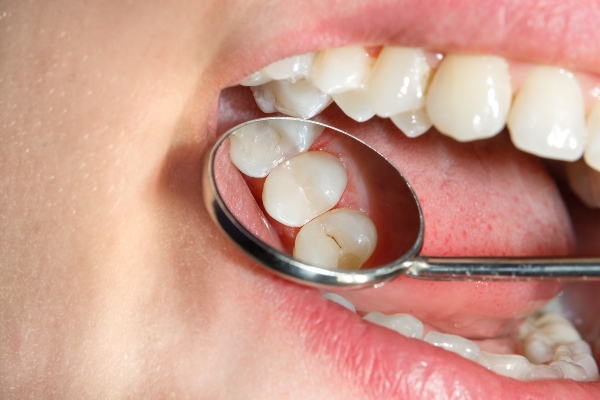What Is Newborn Lip Tie?

A newborn lip tie is a condition that occurs when a child is born with a bit of tissue connecting their top lip to their upper gum. A lip tie, if left untreated, can result in functional difficulties in a child's mouth, limiting movement. Pediatric dentists specialize in lip tie treatment, and in this article, you will find additional information about this condition as well as how it is treated.
An overview of newborn lip tie
A baby's lips must close around the nipple to allow for proper breastfeeding. There must be adequate movement in the baby's upper lip so that they can latch onto the nipple and get a good seal. Lip ties happen when the frenulum membranes (the tissue right behind the top lip) become excessively thick, preventing the upper lip from moving freely. A lip tie is not the same as a tongue tie, which may or may not go away on its own as the child grows. A lip tie should be addressed as soon as it is discovered to guarantee the child's optimal development.
There is not a single specific cause for the development of lip ties in newborns. To put it another way, some newborns are born with lip ties, while others are not at all. Lip ties may occur as early as during pregnancy. Most specialists believe that this is mostly due to genetics; however, this idea has never been proven.
Types and symptoms of lip ties
The severity of the newborn lip tie is classified into four levels. The mildest is Class 1, and the most severe is Class 4. Class 1 is mucosal, class 2 is gingival, Class 3 is papillary, and Class 4 is papilla penetrating. Lip ties can affect either the upper or lower lip or both. Lip ties frequently occur with tongue ties, although they should be treated separately.
If the pediatric dentist has not examined the child, parents should keep an eye out for the following signs:
- Difficulty latching onto the breast or sucking
- A clicking noise
- Choking on milk or spluttering
- Cluster feeding
- Jaundice
- Unsatisfactory weight gain
The mother may also experience discomfort during feedings, damaged or deformed nipples, engorgement, clogged ducts, mastitis, and issues with milk supply.
Lip tie complications
Lip ties may cause different problems for different moms and newborns, thus each case should be evaluated on its own merits. When a woman is able to breastfeed pain-free, her baby will continue to develop weight and get all the nourishment it needs. Breastfeeding may be more challenging if the infant has a Class 4 lip tie, which prevents him from latching on to the breast and consuming enough milk each meal. Even though moms attempt frequent feeding, they may have difficulty if their latch is not perfect.
Lip ties have also been linked to tooth decay along the gumline. Lip ties make a child's oral hygiene difficult, which is necessary for optimal development. An untreated lip tie might cause gum recession.
Babies with lip ties may find it simpler to be bottle-fed, but moms who choose to breastfeed still have choices. It is advisable to soften the breast before feeding and practice proper latch techniques with a lactation consultant for optimal outcomes.
Lip tie treatment
The severity of a baby's lip tie and how it affects feeding are taken into consideration when prescribing treatment. If a baby is able to breastfeed properly yet still has a lip tie, most physicians would advise against additional treatment.
A pediatric dentist can perform a lip tie reversal technique, or frenectomy, to treat lip ties. This painless procedure takes only a few minutes to complete. The parent sits on the dental chair during the treatment, holding the child. A dentist will administer a topical numbing medication. A small handheld device will be used to "cut" the lip tie. After the procedure, the parent will comfort the child and perhaps breastfeed them. The dentist will also provide post-operative instructions, such as pain relievers and exercises after the operation to ensure that the knot does not reconnect.
Ready to schedule an appointment with a pediatric dentist?
A lip tie may hinder a newborn baby's weight gain since it makes breastfeeding difficult. A pediatric dentist's office is the place to go regarding children's dental treatment. If you have any concerns about your child's oral health or want to learn more about newborn lip tie treatment, please get in touch with our dental office to book an appointment.
Request an appointment here: https://www.hvkidsmiles.com or call Hudson Valley Pediatric Dentistry at (845) 363-4177 for an appointment in our Middletown office.
Check out what others are saying about our services on Yelp: Read our Yelp reviews.
Recent Posts
Tooth decay is one of those dental issues that most people will deal with at some point in their lives. Fortunately, dental sealants are a preventative treatment that can help protect teeth from decay. If you are a parent considering protecting your child’s teeth with sealants, you may be wondering about the process. This article…
If your child has recently gotten dental sealants, it is wise to get a toothbrush that cleans the teeth and does not irritate or damage the sealant. The kind of toothbrush that will remove plaque, reach all regions of your child’s mouth and be best for their oral health depends on their particular dental requirements.…
Dental sealants are a preventive treatment that can greatly benefit young children who have just had their permanent molars come through. Sealants can also benefit children with baby teeth, particularly those vulnerable to decay. The following article discusses the numerous benefits of dental sealants for children.Dental sealants for children reduce the risk of dental decay…
While most people are familiar with dental sealants as a preventative treatment for a child's teeth, it is essential to recognize their broader applications. Dental sealants can serve as a remedy for sensitive teeth or even reverse the early stages of a developing cavity. This treatment can also significantly improve the health of a tooth…


